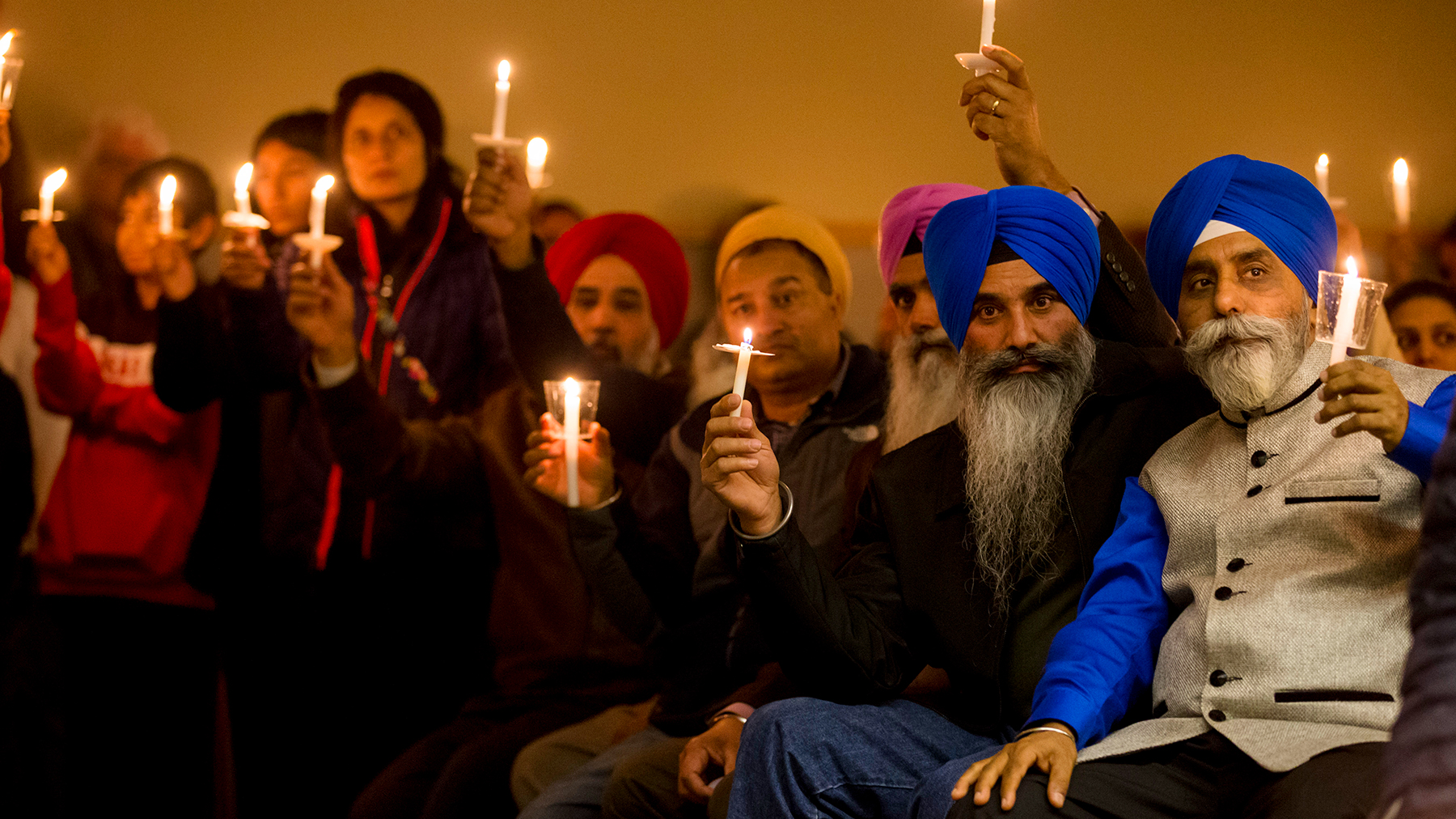Mulugeta Seraw was standing on a corner in Portland, Oregon, when they spotted him.
It was 1988, and he was a college student from Ethiopia. His friends had dropped him off in front of his apartment, and he was standing next to their car, talking, when a group of racist skinheads affiliated with a neo-Nazi group descended.
As one attacker smashed the car’s taillight and a window with a baseball bat, another punched Seraw. When his friends tried to intervene, the skinheads attacked them too, beating the black men with their fists, baseball bats and steel-toed boots.
Seraw, who was just 28, died. He left behind a son in Ethiopia.
We filed a lawsuit on behalf of his family, suing the skinheads who killed Seraw because of the color of his skin, as well as Tom Metzger, the notorious neo-Nazi who headed a group called White Aryan Resistance (WAR). The skinheads had been recruited and trained by WAR. After the murder, Metzger praised them for doing their “civic duty.” We won a $12.5 million jury verdict that decimated WAR.
But hate is alive and well in Portland today, as was noted by a congressional proclamation honoring Seraw 30 years after his death on Nov. 13, 1988.
“In the years since Mulugeta’s death, there have been horrific acts of racially charged violence in Oregon,” U.S. Sen. Ron Wyden of Oregon stated in the congressional proclamation. “In May of 2017, a self-proclaimed White nationalist verbally attacked two women who were riding Portland’s MAX light rail. One of these two women was wearing a hijab. The perpetrator stabbed three men who defended the women against the racist and Islamophobic rant, killing two of them.”
This week, the FBI released its annual hate crime count. It tallied a sobering 7,175 crimes based on bias in 2017. That’s a 17 percent increase from the five-year high counted in 2016.
However, the attack on Portland’s MAX light rail that Wyden referenced — the one on May 26, 2017, that cost Ricky John Best and Taliesin Myrddin Namkai-Meche their lives — wasn’t included in the FBI’s tally.
Nor did it include the death of Srinivas Kuchibhotla, who was fatally shot in a bar in Kansas on Feb. 22, 2017.
The FBI also didn’t count Heather Heyer’s death in Charlottesville, Virginia, during the deadly “Unite the Right” rally on Aug. 12, 2017.
Why not?
The fact is, the vast majority of hate crimes don’t get counted. The Bureau of Justice Statistics estimates there are about 250,000 each year. There are several reasons for the vast discrepancy. First, studies show that only about half of all hate crimes get reported to the police. Second, the FBI relies on some 18,000 local enforcement agencies to forward their data to the federal government. Since the system is voluntary, many don’t do it. And many that do provide the data simply don’t properly identify hate crimes in the first place. In addition, the definition of a hate crime varies from state to state.
This week our partners from the Anti-Defamation League, the Arab American Instituteand the Sikh Coalition were unanimous in lamenting discrepancies between the FBI’s final tally and incidents that we know to have happened in the last year — as well as the clear underreporting of hate crimes that the FBI’s latest count yet again displays.
Hate crime is a serious — and growing — problem, as is white supremacist terrorism like what we saw in Pittsburgh and Kentucky.
In his eloquent proclamation honoring Seraw on the 30th anniversary of his brutal death, Wyden called on all of us to speak out against hate, noting recent “horrific racist acts throughout the nation.”
“It has no place in our country, including in our White House,” Wyden wrote.
We need more leaders to take seriously the domestic threat of white nationalism and to denounce hate crimes vigorously and loudly, as Trump’s predecessors have done — but which he has failed to do.
The lives of people like Mulugeta Seraw depend on it.
The Editors
P.S. Here are some other pieces that we think are valuable this week:
- Starving for help: A search for mental healthcare ends tragically at the Putnam County jail by Ben Conarck for The Florida Times-Union
- This Appalachian nonprofit puts books in the hands of inmates who need them by Sarah Baird for BuzzFeed News
- We thought we knew Faith, until we didn’t by Anna Silman for The Cut
- U.S. law enforcement failed to see the threat of white nationalism. Now they don’t know how to stop it by Janet Reitman for The New York Times Magazine
SPLC’s Weekend Reads are a weekly summary of the most important reporting and commentary from around the country on civil rights, economic and racial inequity, and hate and extremism. Sign up to receive Weekend Reads every Saturday morning.



